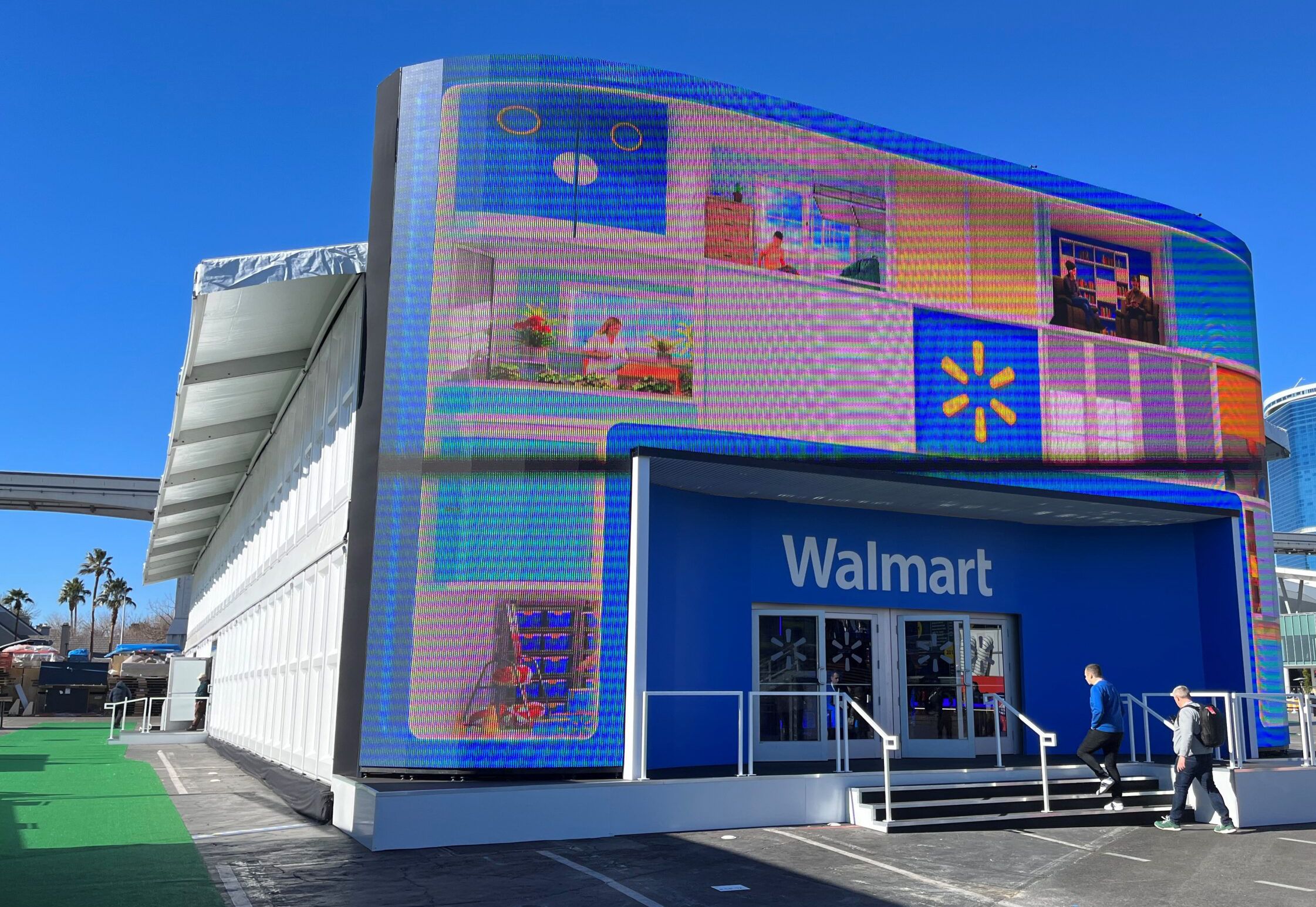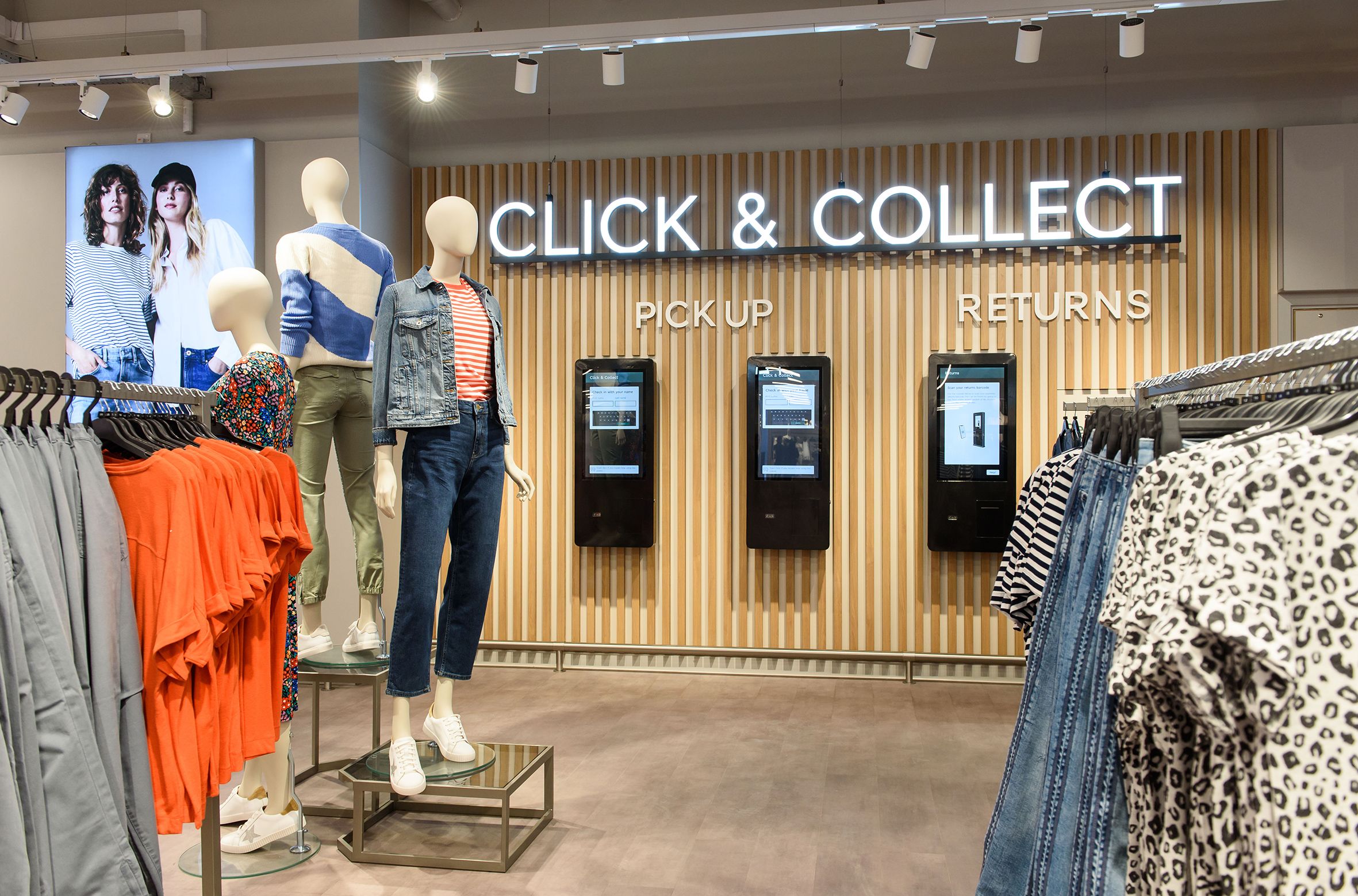Retail innovation
Navigating the shifting sands

“Retail thrives on the new – new products, new formats, the potential of new technology,” said executive editor of Retail Week George MacDonald in an opinion piece in July. He spoke of how, despite the trend for newness, “the great retail businesses” of the UK – citing Tesco, Marks & Spencer and Morrisons – “have typically stayed true to their original purpose no matter how much they have been transformed.”
“All are very different businesses from those that their founders could ever have envisaged – omnichannel, powered by loyalty schemes and customer data, foodhalls not market stalls. But the original inspiration and guiding lights are unchanged,” he said.
Marks & Spencer, Eastbourne, 1955
Marks & Spencer, Eastbourne, 1955
Present-day Marks & Spencer with its in-store tech capabilities
Present-day Marks & Spencer with its in-store tech capabilities
This perfectly sums up the challenge that high-performing retailers – from the UK and worldwide – face when it comes to navigating innovation; that of balancing the pursuit of tech to power growth while maintaining the core business principles that attracted consumers in the first place.
Add margins being squeezed, the inflationary environment, ongoing supply chain uncertainty post-pandemic and geopolitical tension, and retailers clearly have a lot to examine when weighing up their investment priorities.
But where there are challenges, there are opportunities.
When implemented strategically, technological innovation is allowing retailers across the globe to find solutions to problems, to become more efficient, more productive and, ultimately, more profitable.
As we illustrate in the list of 50 innovators celebrated in this report, retailers have an abundance of cutting-edge technology to try out, new software and features they can install and digital expertise to tap into. From new hardware making store experiences smoother to emerging strands of data analytics and AI being embedded into operations, retailers have so much at their fingertips to drive positive change.
And this newness is being maximised by retailers, not as a short-term fix, but as a long-term return on investment.
Retailers already embracing tech transformation are winning customers, boosting intelligence and helping to future-proof their businesses in crucial functions. This includes departments such as data, pricing and promotions, supply chain optimisation, multichannel customer experience and marketing, cybersecurity, internal processes – such as HR and people management – and sustainability.
Retailers already embracing tech transformation are winning customers, boosting intelligence and helping to future-proof their businesses in crucial functions
The key to successful retail innovation though, is knowing how, and where, to invest.
Today’s retailers must have a strategy for identifying, validating and testing new technologies – and they have to develop an approach that allows them to prioritise the most suitable opportunities.
John Lewis, recognised among the 50 global innovators in this report, is a good example of putting these words into action. While the business has not been without its profitability challenges over the past five years, it is investing in tech innovation and pivoting to support growth alongside a complete strategy revamp.
In August, it announced a £5m investment in a raft of new tech including digital headsets to improve communication in stores and reduce waiting time for shoppers; mobile payments on 5,000 partner devices to serve customers on the shop floor rather than at the till to improve convenience and service; and mobile printers so that missing shelf-edge labels can be created quickly across its store networks.
Another retailer with a clear tech-transformation strategy that has already generated demonstrable results is M&S – also among our celebrated 50 innovators. The retailer’s turnaround post-pandemic has been built on establishing a clear multi-prong business plan of which introducing new digital concepts and transformational tech is one pillar.
In May 2024, chief executive Stuart Machin announced that two years into the ‘Reshape for Growth’ strategy, M&S’ food and clothing and home divisions had grown in volume and value share ahead of the market with sales increasing across stores and online.
M&S has invested in data analytics and AI to support the business as it looks to become “more relevant, to more people, more of the time”, and further investments are expected in the year ahead as you will read in its full strategic profile.

Trending tech
Few topics in retail are generating as much focus right now as AI – and for good reason given it has the potential to benefit every area of the retail value chain. In our report, you will see that AI investment features heavily with retailers such as Sainsbury’s, Walmart and Estée Lauder making notable headway.
Outside of AI, omnichannel tech to better merge ecommerce with stores is a big part of many retailers’ plans as evidenced by the approach of Kingfisher, Co-op and Pets at Home.
Supply chain technology to drive improvements in sustainability and software – as well as third-party partnerships to support speedier and more seamless payments and delivery – are also hugely popular among the most innovative retailers right now.
However, it’s not always a relentless march forward for retailers; sometimes it’s a case of two steps forward and one step back. Innovators can often stumble so strategies must be carefully considered.
Sports brand Nike, which for decades has been hailed as a retail innovator, is reassessing its aggressive direct-to-consumer (D2C) strategy after sales growth was difficult to come by last year. Having ended many global wholesale partnerships as part of its D2C move, it is carrying out a new partnership strategy as it seeks more innovation and an upturn in its fortunes.
Even Alibaba and Amazon cannot rest on their laurels as the rise of Temu and other disruptors such as TikTok Shop are making these digital commerce titans reassess their tech strategies to ensure market share does not continue to diminish. As a result, all four businesses feature among the top 50.
Social commerce has forced online retailers to reassess their tech strategies
What is also clear, as you’ll see from this report, is that advances in tech capability create genuine differentiation for retailers.
So, without further ado, read on to learn from our pick of 50 inspiring global retailers building tech investment and embracing digital evolution as part of their core strategies.
Through our series of succinct, strategic tech investment profiles you will gain an understanding of how retailers are innovating successfully and learn about the partners they are working with to support them on their journeys.




